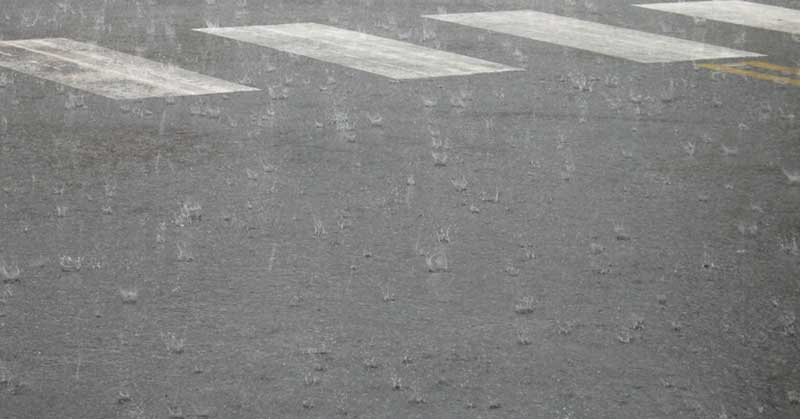Most of us know that the freeze-thaw cycle that many roads are exposed to during the winter months can damage a paved surface, but you don’t have to live in a snowy climate to experience damaged asphalt during the winter months. Whether you realize it or not, rain can be just as damaging. In fact, water is one of the leading causes of asphalt damage.
When a paved surface is exposed to rain on a regular basis, tiny cracks start to form. These cracks may be barely noticeable, but they’re large enough to let water seep through the surface of the asphalt. Once that happens, it causes the cracks to grow which, in turn, allows more water to enter the pavement. That cycle continues in rainy weather, and if the surface isn’t repaired right away, other more extensive damage can occur, including large potholes, depressions in the surface, and damage to the sublayers of the pavement. If the sublayer of the pavement is damaged, it may result in repaving or replacing the asphalt altogether.
There are a few ways to prevent your asphalt surface from being damaged by the rainy season:
- Make sure you have adequate drainage. The longer water sits on the top of a paved surface, the more time it has to seep into those tiny cracks, and that’s when more damage can occur. Ask your paving contractor to repair any depressions that may exist on the surface of the pavement, and ensure that water is allowed to run off the surface as much as possible. Curbs, slopes and gutters that are strategically placed in and around parking lots and roads help rainwater to drain off quickly – before it has a chance to damage the pavement.
- Have minor cracks repaired as quickly as possible. The longer you wait, the more likely it is that your asphalt will be damaged by the rain.
- Ask your paving contractor to seal coat the surface. Seal coat is the best way to safeguard against damage due to weather. The frequency of seal coating depends on the age of your pavement, how much heavy traffic it’s exposed to, and what the weather conditions are in your area. A paving specialist can recommend how often your surface needs to be seal coated.
For more information about how to protect your asphalt in the rainy season, contact a local, trusted paving contractor today.
